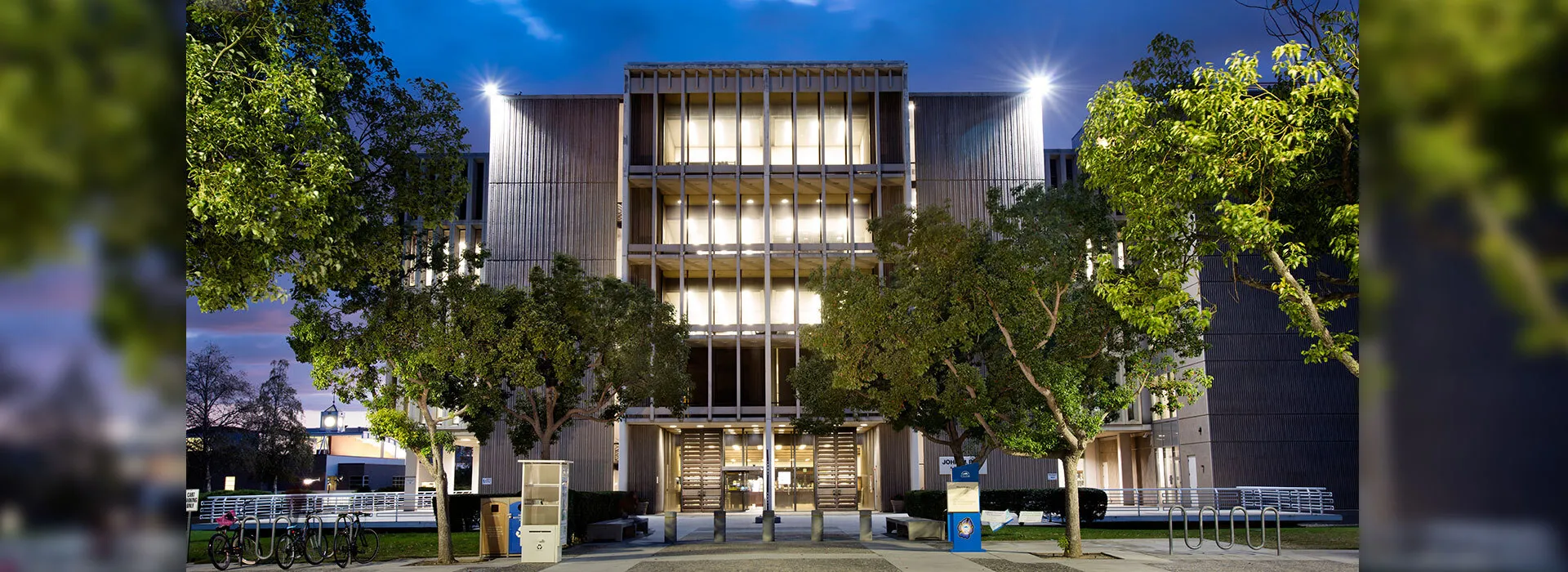
College campuses “must not only be a bastion of diverse people as we are so successfully, but also a bastion of diverse ideas as well as all sides of the political spectrum.”
That was the thought of Brian Levin, a professor of criminal justice at Cal State San Bernardino and director of the university’s Center for the Study of Hate and Extremism. Levin was the inaugural speaker of Yotie Talks, a topical lecture program similar to TED Talks, featuring dynamic experts from CSUSB’s faculty discussing timely and contemporary issues.
Levin’s talk, “Emerging Issues on Hate and Extremism,” was to help deal with the aftermath of the Dec. 2 shootings at the Inland Regional Center in San Bernardino, which left 14 dead and 22 wounded, and continues to be on the minds of many in the inland region and on the CSUSB campus.
He spoke Feb. 23 before an audience of about 70 students, faculty and staff in the university’s Santos Manuel Student Union and streamed online to the university’s Palm Desert Campus on the increasing threat of terrorism, both international and domestic; civil wars around the world; the increasing use of social media to recruit prospective terrorists; the increase of anti-Muslim attacks in the United States; the upsurge in conspiracy theories and how college campuses need to step up in promoting discussions of all points of view.
“If our democracy and our education system is going to mean anything, it is exposing our students and ourselves to divergent and even uncomfortable ideas,” Levin said. “I think the American university system has failed in that regard and we should redouble our efforts.”
Referring to “conservative speakers of good will,” Levin said, “If there’s one thing I have learned, they are correct in that conservative viewpoints are stifled or ridiculed on college campuses.
“Universities are unlike any other place on earth,” he said. “American universities are a special place where our jobs are guaranteed not only for what we say, but for the tolerance for the ideas of others who we so vigorously disagree with.”
In the hours and days after the San Bernardino shootings and the November attack in Paris, local, national and international news media sought Levin for his expertise and insight to help make sense of it.
A graduate of Stanford Law School, Levin is the author, co-author and editor of various books, scholarly articles, training manuals and studies on extremism and hate crime. In addition to appearing and being interviewed by news media on issues related to terrorism, extremism and hate crimes, he has been called as an expert witness to Congressional hearings, most recently in October 2015.
Levin has written various U.S. Supreme Court friend-of-the-court briefs, including those in the landmark case of Wisconsin v. Mitchell, where he presented criminological data establishing the severity and characteristics of hate crime. His analysis has won various awards and his work has been referenced in numerous prominent social science journals and major law reviews.
Before entering academia in 1996, Levin served as associate director-legal affairs for the Southern Poverty Law Center's Klanwatch/Militia Task Force in Montgomery, Ala., and as a corporate litigator for the law firm of Irell & Manella. He was also a New York City police officer in Harlem and Washington Heights during the 1980s, and received citations for academics and excellent police duty.
For more information on the Yotie Talks, contact Felix Zuniga at fzuniga@csusb.edu or (909) 537-5095.
Set in the foothills of the beautiful San Bernardino Mountains, CSUSB is a preeminent center of intellectual and cultural activity in inland Southern California. Celebrating its 50th anniversary in 2015-2016, CSUSB serves more than 20,000 students each year and graduates about 4,000 students annually.
For more information about Cal State San Bernardino, contact the university’s Office of Strategic Communication at (909) 537-5007 and visit news.csusb.edu.